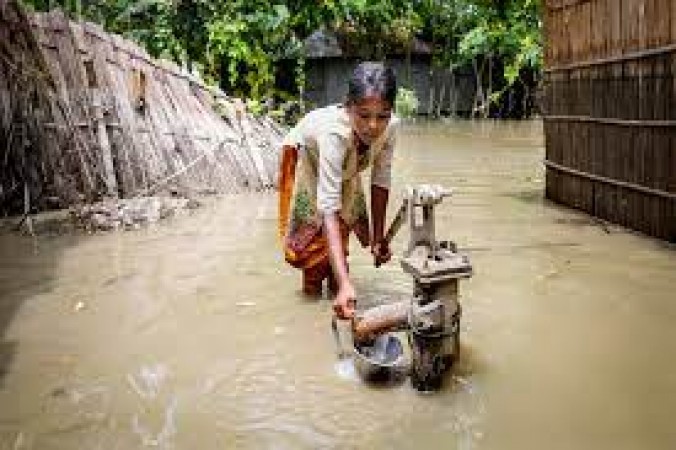
Water is a fundamental resource for sustaining life and supporting economic development. However, the increasing demand for water resources, coupled with environmental challenges, has led to a controversy between water disasters and development. In this article, we will explore the delicate balance between harnessing water for progress while ensuring the preservation of ecosystems and natural resources.
Controversy Between Water Disaster and Development
Water disasters, such as floods, droughts, and water pollution, have significant implications for both human populations and the environment. Floods can cause widespread destruction, displacing communities, and damaging infrastructure. On the other hand, droughts lead to water scarcity, affecting agriculture, industries, and overall economic productivity. Pollution from industrial and domestic sources contaminates water bodies, threatening aquatic life and human health.
At the same time, water development projects play a crucial role in meeting the growing demands of modern society. These projects include dams for hydropower generation, irrigation systems for agriculture, and water supply networks for urban areas. Water development projects can uplift economies, provide electricity, and improve access to clean water, especially in developing regions.
Balancing Act: Sustainable Water Resource Management
To address the controversy between water disasters and development, sustainable water resource management is essential. Integrated Water Resource Management (IWRM) is a holistic approach that considers the interdependence of water, land, and ecosystems. By balancing economic, social, and environmental needs, IWRM seeks to ensure the equitable and sustainable use of water resources.
Governments play a critical role in developing policies that promote responsible water management. Legislation and regulations must encourage the efficient use of water, prevent pollution, and protect water sources. Public-private partnerships can also drive innovative water projects that focus on sustainability and environmental preservation.
The Human Factor: Responsible Water Consumption
Individual actions contribute significantly to the overall impact on water resources. Urbanization and population growth increase water demand, making water conservation efforts vital. Simple changes in daily habits, such as reducing water wastage and using water-efficient appliances, can collectively make a difference.
In agriculture, adopting smart irrigation systems and practicing water-efficient farming methods can reduce water consumption while increasing crop yields. Furthermore, recognizing water as a human right necessitates equitable access to clean water for all, regardless of socioeconomic status.
Case Studies: Learning from Success and Failure
The Netherlands, known for its extensive water management systems, provides valuable lessons in flood protection and land reclamation. On the other hand, projects like China's Three Gorges Dam have faced criticism for their environmental and social impacts.
Hydropower dams have demonstrated the potential to generate clean energy, but their construction has often displaced local communities and caused ecological disruptions. Learning from such case studies can guide future water development endeavors towards a more sustainable and inclusive approach.
Embracing Technology for Water Sustainability
Advancements in technology offer promising solutions to water challenges. Water monitoring and data analytics help identify patterns and trends, aiding in informed decision-making. Desalination and water purification technologies provide alternatives for regions facing freshwater shortages.
Smart irrigation systems, equipped with sensors and automation, optimize water usage in agriculture, reducing waste and enhancing crop yields. Embracing these technologies can significantly contribute to water sustainability.
Water Ethics: Balancing Rights and Responsibilities
While water is essential for development and progress, it is also a finite and precious resource. Ensuring access to clean drinking water must be a priority for governments and societies. However, it is equally crucial to consider responsible water use to prevent depletion and preserve ecosystems.
Raising Awareness and Empowering Change
Raising awareness about the importance of water conservation is essential for fostering behavioral change. Educational initiatives can inform the public about water-related issues and inspire individual action. Community-based programs empower local residents to actively participate in water management efforts.
Advocacy and public support are crucial for influencing policymakers and driving sustainable water policies at the regional, national, and international levels. The controversy between water disaster and development highlights the delicate balance required for sustainable progress. While water development projects offer opportunities for economic growth, they must be implemented responsibly to avoid ecological damage and social upheaval. By adopting integrated water resource management, embracing technological solutions, and promoting responsible water consumption, we can pave the way towards a future where water resources are preserved for generations to come.
Govt Action Looms for Twitter after Viral Video of Manipur Women Paraded Naked
Manipur Unrest: CM Urges Thorough Probe into Viral Video's Authenticity
Sonia Gandhi Urges PM Modi for Manipur Discussion in Parliament